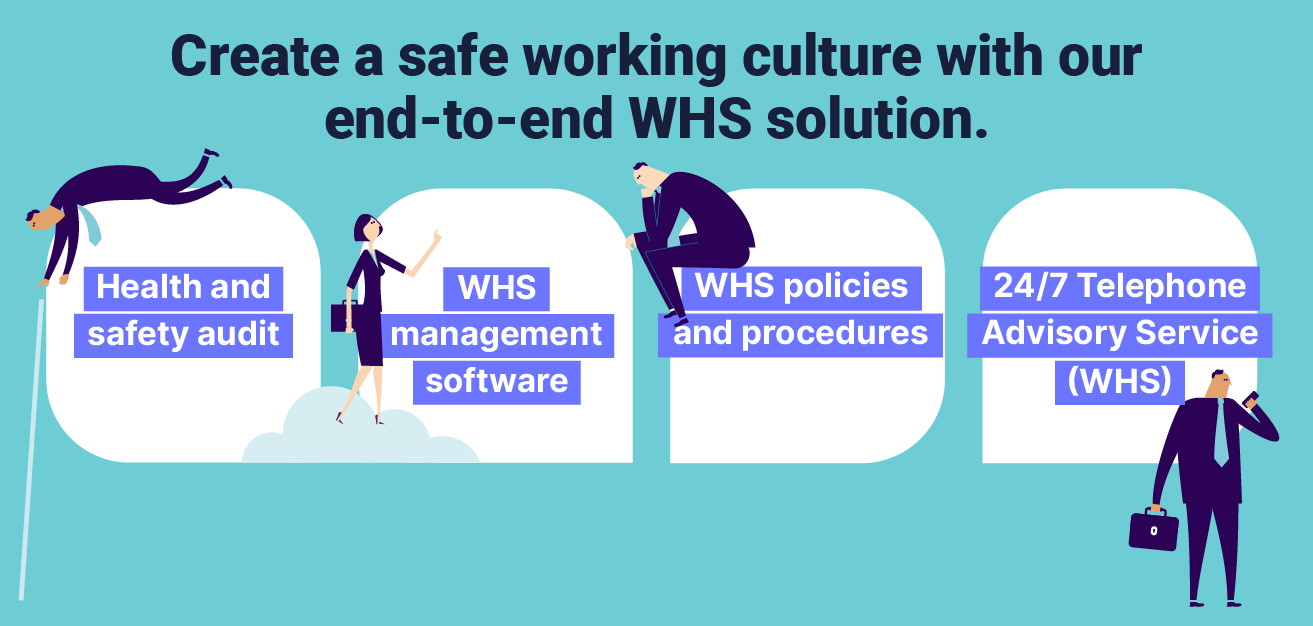By Zaynab Aly
If you operate a business within Western Australia, are you aware that the state will introduce new Work Health and Safety (WHS) laws? Originally passed in November 2020, Western Australia’s Work Health and Safety Act 2020 (WHS Act) will come into effect in 2022, most likely in March.
In this article, I deep dive into these changes and what your business can do to prepare and ensure it is compliant with these new laws.
Why is the law changing?
The new WHS Act will streamline all Western Australian workplaces under the same WHS legislation and replaces several separate Acts currently in place. It’s based on the national WHS Model laws, bringing the WA legislation in line with most other states and territories, but has some notable additions that are specific to WA.
Three sets of regulations will come into force with this legislation:
- Work Health and Safety (General) Regulations – these regulations cover all workplaces, except those to which the other regulations apply;
- Work Health and Safety (Mines) Regulations – these regulations are specifically for mining and mineral exploring operations; and
- Work Health and Safety (Petroleum and Geothermal Energy Operations) Regulations – these regulations are for operations related to onshore and offshore petroleum, pipeline, and geothermal energy.
What’s changed?
The new WHS laws are modelled on the national WHS Act used across Australia (except in Victoria) but have been further tailored specifically for WA.
One of the major changes is the introduction of criminal offences, including industrial manslaughter. This applies to persons conducting a business or undertaking (PCBU) and senior officers, whose failure to comply with their WHS duties results in death if it can be established that the person knew their conduct was likely to cause death (or serious harm) and they acted in disregard of that likelihood.
The new laws are also wider in scope and address employment types beyond the traditional employer-employee relationship, such as labour-hire relationships and volunteers. Further, a specific duty is imposed on the PCBU as the person with the primary duty of care to ensure health and safety.
It’s unlawful to purchase or provide insurance for WHS monetary penalties, and many of the penalties themselves have also increased. Enforceable undertakings as an alternative to penalties have also been introduced: these set out obligations for a company following a WHS breach. There are also changes to some reporting requirements such as those for major illness or injury, and some frameworks for licensing and registration.
Transition measures
Transition provisions will be in place during the changeover to allow WA employers to adjust to any substantial changes to the current WHS obligations and are set out in Part 16 of the new WHS Act.
What do employers need to do?
WA employers should familiarise themselves with their obligations before the WHS Act comes into effect in early 2022 and take the opportunity to review their WHS policies and procedures to ensure they’re compliant.
If you’ve got any questions about how these legislation changes impact your business or how your business should respond in the event of a WHS incident, please contact our HR Assured team at our 24/7 Telephone Advisory Service.
Not an HR Assured client and have questions about this article? Contact the team at HR Assured for a confidential, no-obligation phone call.
Zaynab Aly is a Workplace Relations Consultant at HR Assured. She has a particular interest in the retail industry and regularly provides advice on workplace matters to find solutions for clients.
Make sure your business is meeting its obligations under WHS law and create a safer working culture.





